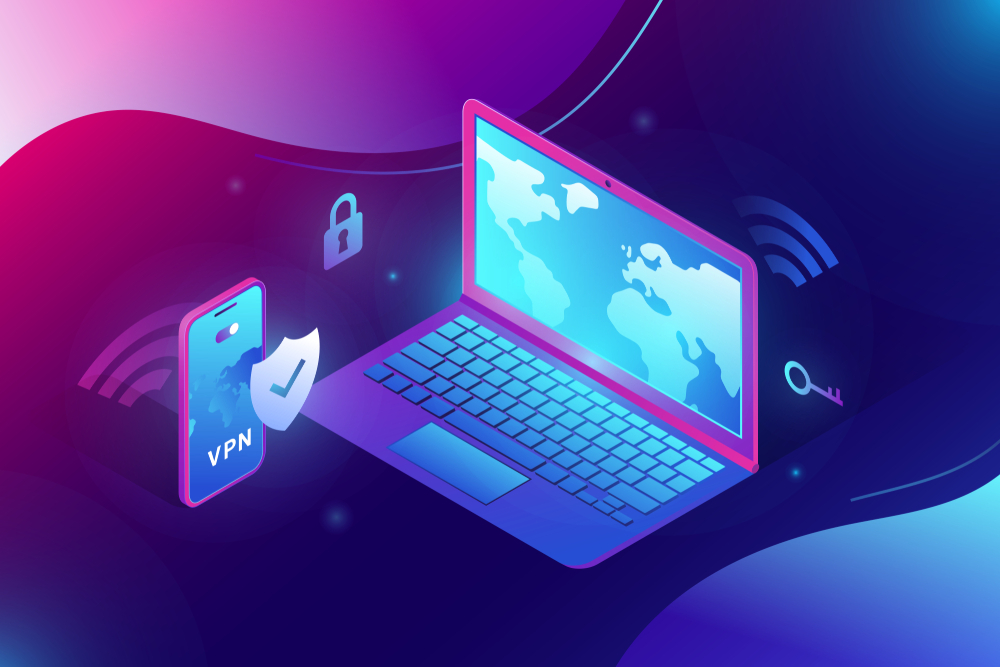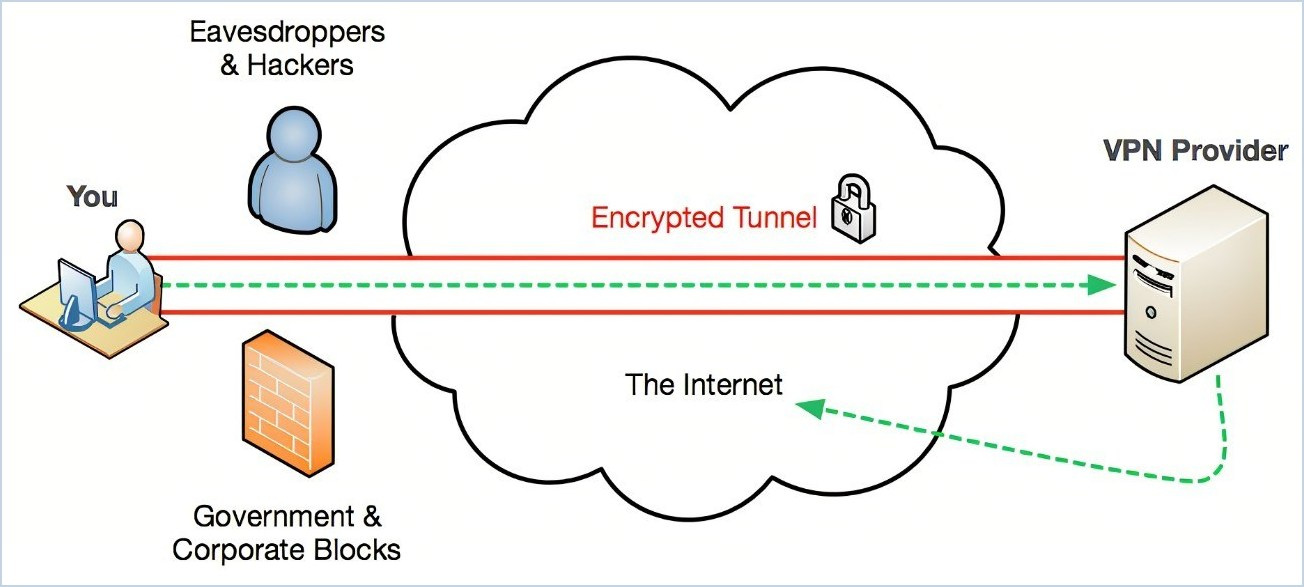
Date First Published: 28th January 2022
Topic: Computer Networking
Subtopic: Network Setups
Article Type: Computer Terms & Definitions
Difficulty: MediumDifficulty Level: 5/10
Learn more about what a VPN is in this article.
Not to be confused with a VPS (Virtual Private Server).
Short for a virtual private network, a VPN provides a secure and private connection over a public, business, or home network by connecting to a server and changing the IP address, which is known as establishing an encrypted tunnel. All traffic is encrypted by the VPN, helping to protect people's online privacy and anonymity. VPNs are also known to provide secure connections, much more secure than public network connections. When connecting to a VPN over a network, all sensitive information, such as financial details are encrypted, which provides protection for people's online safety. A diagram that shows the structure of a VPN can be seen below.

VPNs have been around since 1996. In 1996, employees of Microsoft created a peer-to-peer tunnelling protocol, which was a way of encrypting data and building a tunnel through a LAN or WAN connection in order to create a secure network between users. This protocol made it possible to securely send sensitive data over public networks.
Some free VPNs include Windscribe, TouchVPN, ProtonVPN, and TunnelBear. Some paid VPNs include ExpressVPN, Avast Secureline VPN, Cyberghost, and Surfshark. This is not a full list of every VPN. There are a lot of other VPN providers.
If so, it is important that you tell me as soon as possible on this page.
Network Services Network Setups Network Standards Network Hardware Network Identifiers Network Software Internet Protocols Internet Organisations Data Transmission Technologies Web Development Web Design Web Advertising Web Applications Web Organisations Web Technologies Web Services SEO Threats To Systems, Data & Information Security Mechanisms & Technologies Computer Hardware Computer Software Ethics & Sustainability Legislation & User Data Protection